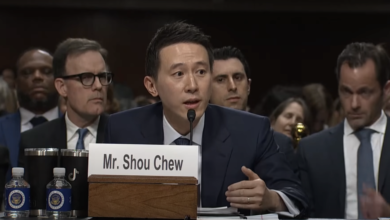There is no greater indication that we are on the brink of war than the current behavior of the U.S. corporate media. Since Sunday, their militarism, imperial chauvinism and uniform obedience to the government — characteristics that they try to hide in normal periods — have been on full display.
The Bush administration fabricated evidence to justify its war of aggression in Iraq. By contrast, the Obama administration has simply said “we have evidence” and from there has banked on the media to do the hard work for them, generating the mood and public opinion to justify going to war.
Taking John Kerry’s word for it
Headline after headline has repeated Secretary of State John Kerry’s words that Syrian government’s culpability is “undeniable” and that he has “strong evidence” to prove it. Articles report on the “confidence” of the U.S. war-makers — as if that is all we need to know. The problem is, of course, that the U.S. government’s accusations are deniable and have been repeatedly denied.
Kerry, meanwhile, still has not revealed his alleged evidence to the world or even to the UN that the Syrian government is responsible for the terrible and tragic chemical weapons attack that killed hundreds of civilians. To the contrary, Kerry actively worked behind the scenes to get the UN to cancel their own inspection trip.
Lakhdar Brahimi, the envoy to Syria for the UN and the Arab League — who is by no means an ally of the Syrian government — said they would be “very, very, very interested to hear from” the United States about such evidence, but they have not received anything yet. The U.S. corporate media is not interested at all — not even one “very.”
To the extent the U.S. government is expected to produce any evidence, it will come from the Office of the Director of National Intelligence James Clapper. Clapper has directed the unconstitutional NSA domestic spying program, and blatantly lied before Congress last year about its existence.
Misleading and militarist headlines
One would think that a respectable news organization that supposedly cares about human life might want to publish an article, on the eve of war, with headlines like “Still no evidence presented of Syrian government responsibility in attack,” or “U.S. evidence on chemical weapons to come from least trusted agency in government,” or “U.S. government has no legal basis to attack Syria.”
We should not hold our breath. In this climate of war hysteria, such factual headlines would be considered almost inflammatory.
Instead, the media is uncritically repeating the claims of Washington, publishing articles that read like White House press releases.
The New York Times just published an Op-Ed piece headlined “Bomb Syria, even if it is illegal.” The CNN homepage appears to have been taken over by the Pentagon, or the makers of Call of Duty, with big pictures of warships and enormous headlines that read: “We’re ready to go, like that.”
This is typical of the media’s past behavior periods leading up to military attacks. The targeted country is completely silenced in the attacking country’s media and their leaders are portrayed as crazed demons who must be stopped at any cost.
The questions not being asked
The Syrian government says that the claims they carried out the chemical attack are “an insult to common sense.”
Indeed, there are some elementary questions that the most trained and well-paid journalists are simply glossing over or ignoring. Who stands to gain from this chemical attack? Who stands to lose? Why would the Syria government, enjoying the military initiative on the ground, and a decreasing likelihood of foreign intervention, do the one thing that would invite foreign intervention and swing the advantage to the rebels?
Why would the Syrian government carry out a chemical weapons attack the very day a UN team was set to arrive to investigate earlier chemical weapons incidents? (The UN attributed some of these previous chemical weapons attacks to the rebels, although this provoked no great outcry in the Western media or among their governments.)
Why would the Syrian government gas sleeping civilians in the middle of the night in an area that was not even an active warzone? The New York Times has fumbled around ridiculously to generate an answer: Assad wanted to make Syrian rebels return home from the front, Assad misjudged the international community, Assad just attacks civilians indiscriminately.
Why would the Assad government order sniper attacks on the UN inspectors they just invited into the country, hoping to prove the government’s innocence of the chemical attacks and prevent intervention? And if sectors of rebels, instead of the government, are responsible for the sniper attack (which is far more logical), what do they have to hide?
We can speculate on a series of more plausible scenarios in which other parties — who actually would have something to gain from western intervention — could have carried out the chemical attack. But without the evidence, we must at least do what the U.S. government will not: ask the questions.
As the corporate media mobilizes for the war effort, all genuine progressive organizations, journalists and independent media, must mobilize for the anti-war effort.





